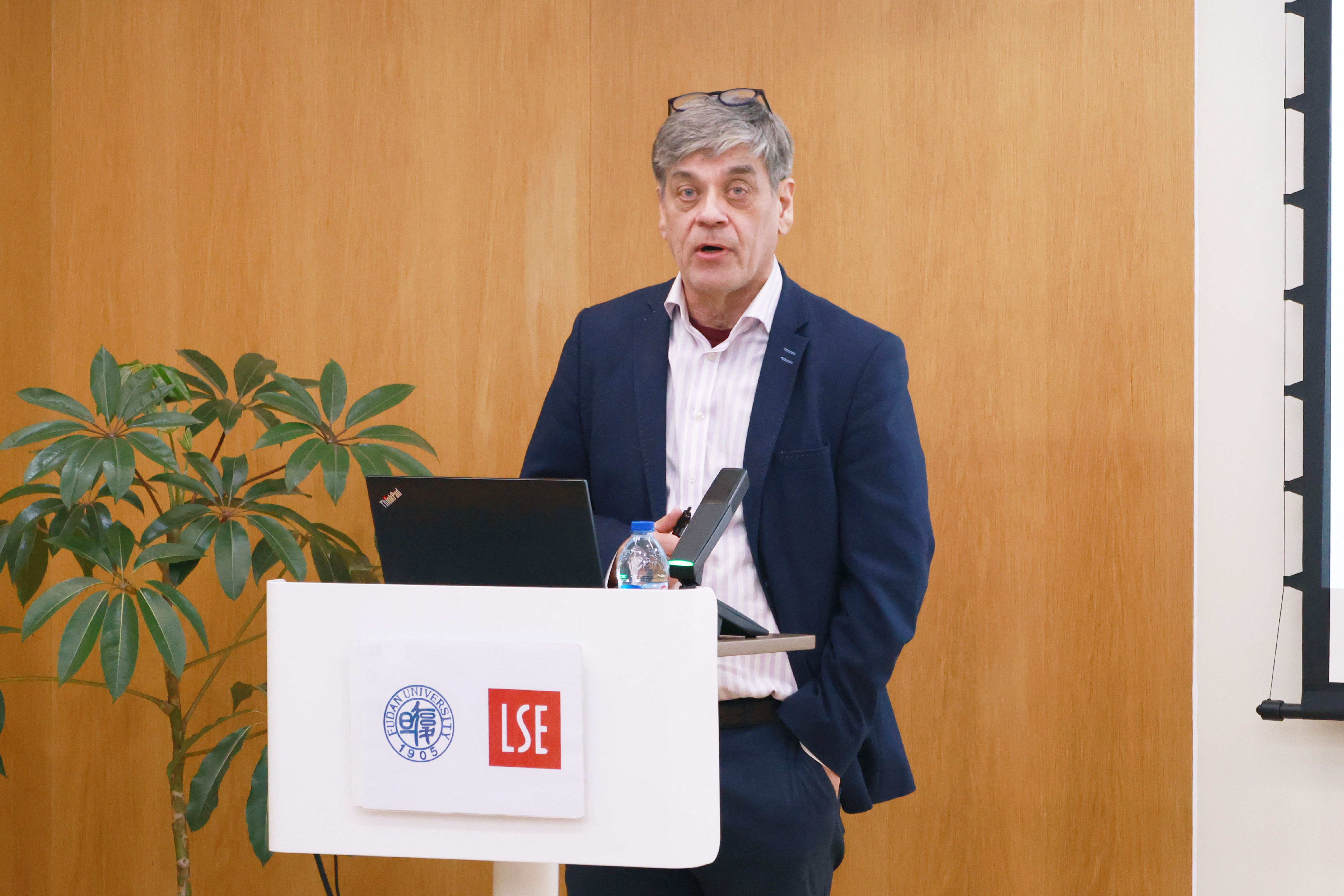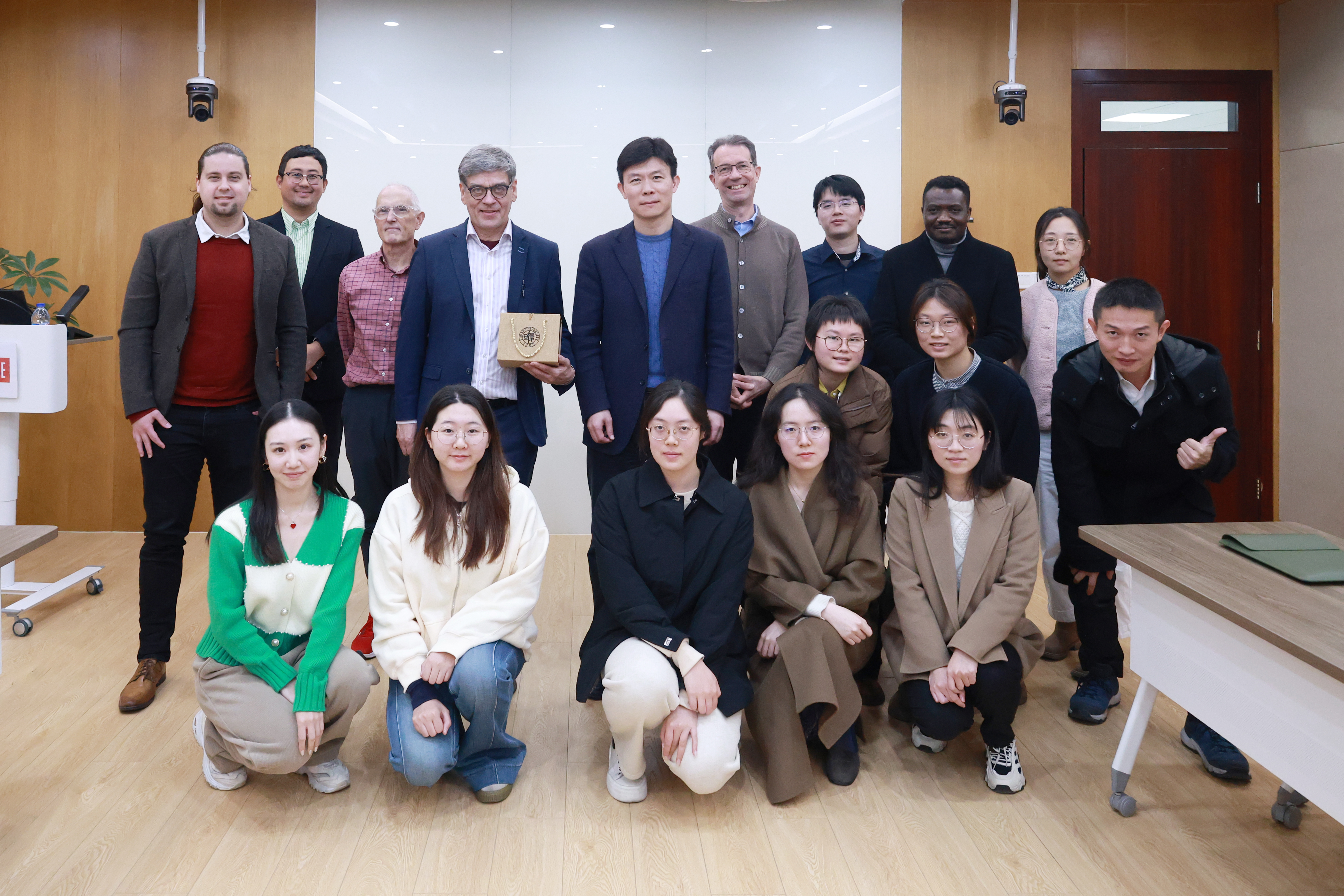
On March 31, 2025, the Fudan Institute for Global Public Policy (IGPP) organized the 70th lecture of the Fudan-LSE Lecture Series. Professor Timo Toikko from the University of Eastern Finland delivered a lecture on the theme of Balancing Demand and Provision in Public Services: Insights from Child Welfare, which was chaired by Yijia Jing, Dean of IGPP.
Professor Toikko is the Head of the Department of Social Sciences and Professor of Social Work at the University of Eastern Finland. His research focuses on child welfare, social welfare systems, and the development of social welfare.

At the beginning of the lecture, Professor Toikko drew upon his extensive research on social service systems to introduce the structure and evolution of Finland’s welfare regime, reflecting on his practical experience in the field of social work. He highlighted the central role of the Finnish public sector in education and social services, noting that public institutions provide free education at all levels. However, the situation differs in the healthcare sector, where there has been a growing involvement of private institutions. This shift has sparked debates about balance service efficiency with equity. Professor Toikko also introduced the concept of “care poverty,” referring to the gap that emerges when individual hardships are not fully recognized or addressed by the service system. He emphasized that service assessments are shaped by subjective judgments and that standardized procedures often lack the flexibly needed to respond to diverse individual circumstances, leading to mismatches between actual needs and the services provided.
Professor Toikko then shifted to the institutional functioning of child protection services, highlighting the structural imbalances within the system. Drawing on empirical research, he observed that recipients often face overlapping challenges—such as mental health issues and employment difficulties—yet the current service framework typically addresses only isolated aspects of these problems. He introduced the concept of the “inverse intervention law,” which describes the paradox wherein families with the greatest need—often located in disadvantaged areas—are the least likely to receive sufficient services. In response, Professor Toikko underscored the urgency of macro-level social policy reforms aimed at enhancing institutional responsiveness to complex needs. He also called for greater sensitivity to contextual factors and individual differences in the design and delivery of public services.
During the Q&A session, faculty and students engaged in in-depth discussions with Professor Toikko on topics such as how to assess the gap between perceived needs and those identified by the system. Professor Toikko highlighted a fundamental challenge in today’s social service systems: the persistent mismatch between the scale of societal needs and the limited capacity of existing services. He emphasized that so-called “service provision standards” are not static or absolute, but rather the product of continual negotiation, compromise, and adaptation by service providers within legal and institutional boundaries. He argued that future policy design must prioritize contextual adaptability and enhance responsiveness to individual circumstances in order to build a more inclusive and equitable public service system.

On behalf of the IGPP, Professor Jing presented a gift to Professor Toikko, and the lecture concluded successfully with a group photo.




